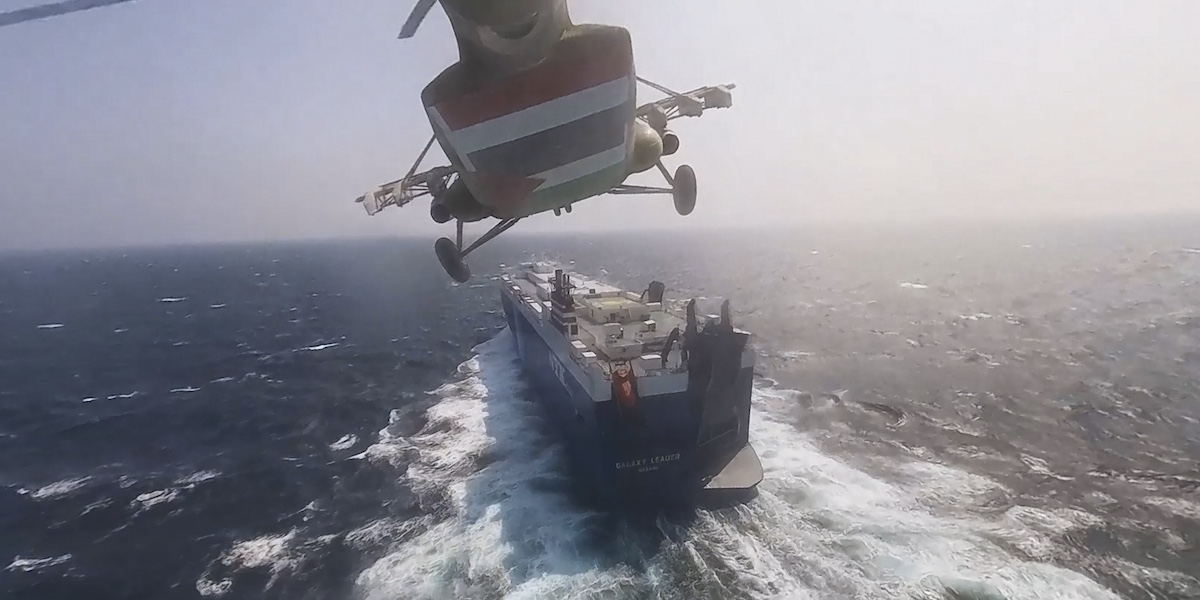Loading player
The decision of some large cargo transport companies to suspend their naval routes through the Red Sea due to missile attacks carried out by the Houthis – the Shiite armed group that controls much of Yemen – could have major consequences on global trade.
Maersk, the world‘s second largest cargo shipping company, announced on Friday that it had suspended voyages of its container ships in the Red Sea due to dangers posed by Houthi missile attacks. Shortly afterwards, Hapag-Lloyd, another large shipping company, also announced the suspension of travel along the same route. These announcements come after that in recent months numerous civilian and military ships have been hit or threatened by missiles in the Bab al Mandeb Strait, a 32 kilometer wide canal that connects the Red Sea with the Indian Ocean and which is controlled on the one hand by Djibouti and on the other by Yemen (therefore by the Houthis).
The Houthis, who are supported by Iran, have intensified their missile launches in retaliation against Israel after the start of the war in the Gaza Strip, making that stretch of sea increasingly unsafe. Their attacks are mainly concentrated against Israeli and US ships, and are often intercepted by the US Navy present in the area. Despite this, there are also risks for other ships, as demonstrated by some attacks in recent days, when for example a Norwegian ship was hit with a cruise missile.
The Bab al Mandeb Strait controls the southern access to the Red Sea, and is one of the most strategic maritime transport locations in the world: approximately 12 percent of the world‘s goods pass through it. If other companies decide, as Maersk and Hapag-Lloyd have done, to suspend their ships’ voyages along this route, this could lead to delays and increased costs with major consequences for trade.
At the moment the situation is still calm: the satellite tracking systems of the ships show that the Red Sea is still very busy, and Hapag-Lloyd has made it known that it intends to suspend its routes only for a few days. Some Israeli ships – which are the most targeted – have, however, already started to avoid the Red Sea: the only way to do so is to circumnavigate Africa, which involves a huge navigation delay, with journeys lasting around 30 percent more.
However, the Houthi missile attacks are already having an effect: the insurance costs of cargo ships have increased considerably, and this has made travel more expensive. Insurance costs for ships passing through the Red Sea are doubled for all ships, and they increased even more (by 250 percent) for ships flying the Israeli flag, which are the most exposed and vulnerable. This means that shipping companies have to spend between 50 and 100 dollars more for every single container they send through the Red Sea (and a container ship can carry tens of thousands of them). It’s a high cost in absolute terms but not yet high enough to cause price increases for consumers (a single container can hold a lot of goods, and the $50–100 increase can be written off quite easily).
If the situation in the Red Sea worsens, however, costs could also increase, and begin to influence consumer prices as well.
Analysts, however, currently believe it is unlikely that the Houthis have the means to block the Red Sea and further threaten shipping. Recently, however, US security advisor Jake Sullivan he said that the United States was organizing an “international coalition” to counter the Houthi threat in the Red Sea.
